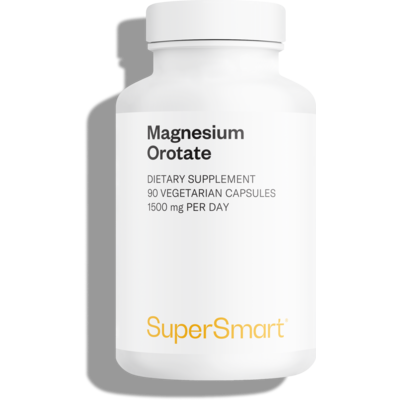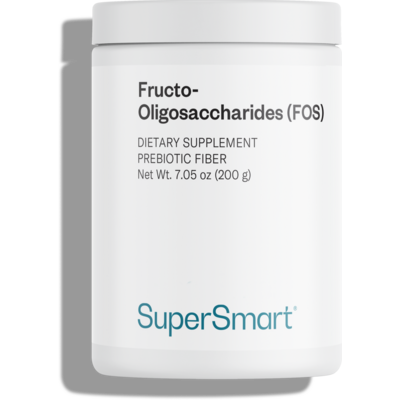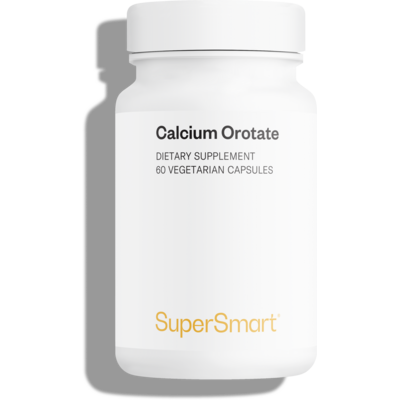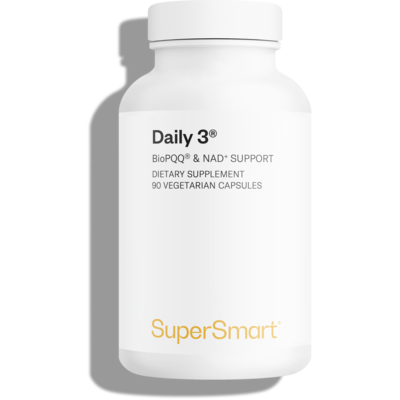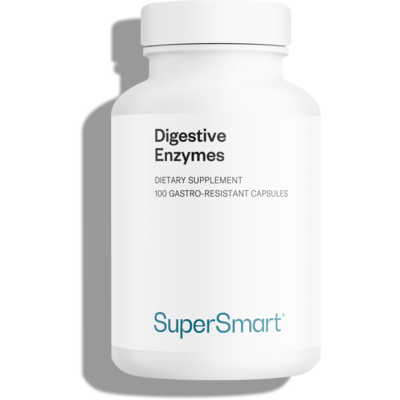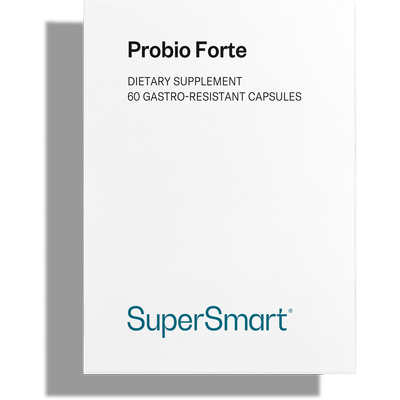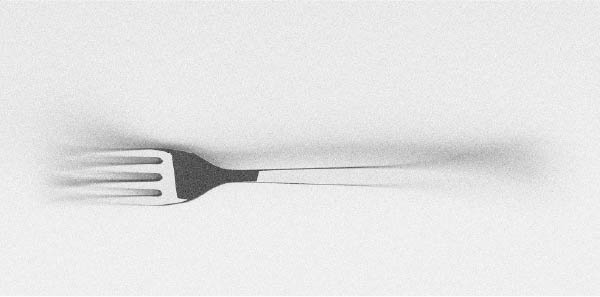Egg diet: principle, menus and recommended and non-recommended foods
What does the famous 'egg diet' consist of, designed to ensure express weight loss? Discover its principle, our opinion and our recipes.

'Egg diet': principle of this diet
The 'egg diet' or 'egg regimen' is a popular diet that has emerged over time and which requires, for a few days:
- eating eggs at each of the 3 main meals of the day (accompanied by other foods such as chicken or fish, non-starchy vegetables, etc., in order to rebalance the diet to a minimum);
- More specifically, it is a question of rapidly lowering the calorific value of the diet by reducing the consumption of carbohydrates, while maintaining a sufficient intake of proteins to preserve muscle mass. Eggs are a food with a low calorie content and are also rich in protein. What's more, they make you feel full and therefore help to control the appetite (1). It is also a good source of micronutrients (vitamin B12, D, selenium, zinc, etc.)
Radical, this low-calorie diet leads on average to the consumption of around 800 to 1,000 kcal per day, which is very little and can stress the body. An egg diet is therefore carried out over a few days, a week at most.
What are the benefits of the egg diet?
The egg diet should normally allow you to lose 2 to 4 kilos in a short week of dieting (5 to 7 days).
This weight loss is due to:
- a loss of fat mass. The drastic reduction in carbohydrates in the diet leads to an increase in glucagon levels, which after a few days induces a state of ketosis. In ketosis, the liver produces ketone bodies from fatty acids stored in adipose tissue to supply the body with energy, effectively promoting fat burning (2).
- to a loss of water. This is also due to the reduction of carbohydrates, stored in the body in the form of glycogen. When glycogen reserves decrease, they release the water associated with them, which contributes to weight loss (3).
Dangers and contraindications of this drastic diet
Our opinion on the egg diet
This diet with promising and tempting objectives is a potentially effective and rather 'old-fashioned' diet.
Although it is recommended by certain nutritionists such as Jean-Michel Cohen, it is often criticised for being difficult to follow (reducing the amount of carbohydrates consumed can be challenging), and for the significant risk of the yo-yo effect (gaining weight back after the diet).
Don't hesitate to contact a health professional for advice before trying this diet, and if you do give in to temptation, be sure to follow the precautions below.
3 precautions to take during the egg diet
Even in healthy people, such an express, radically low-calorie diet requires at least these 3 elements to be taken into account:
- as already mentioned, the egg diet should not be prolonged to avoid nutritional deficiencies, a metabolic slowdown or the onset of unbalanced eating behaviours;
- Furthermore, it is important to avoid any sudden or intense physical activity during the diet, as the restrictions can lead to fatigue and episodes of hypoglycaemia. However, it is essential to maintain gentle physical activity, such as walking or cycling;
- The third precaution concerns the end of the egg diet. It is crucial to wean yourself off the diet gradually to avoid regaining weight. Then maintain a balanced and healthy diet, rich in protein and low in saturated fats and added sugars, in order to stabilise your weight and maintain a low body fat percentage.
Contraindications to the egg diet
High-protein, the egg diet can overload the liver and kidneys, especially in people already suffering from pathologies associated with these organs (4). In general, this type of diet is strongly discouraged in the following cases:
- renal or hepatic insufficiency;
- cardiovascular or muscular diseases;
- hypercholesterolaemia or hypotension;
- eating disorders;
- serious nutritional deficiencies;
- pregnancy and breastfeeding;
- elderly people and/or people undergoing treatment.
Even outside of these conditions, do not hesitate to seek advice from a health professional before following this restrictive diet.
Which foods should you choose or avoid on this diet?
Egg diet: recommended foods
The egg diet generally recommends that you prioritise these foods:
- of course eggs, to be eaten in different forms (cooked, poached, hard-boiled, in an omelette without added fat);
- lean meats (chicken, turkey, fish, seafood, etc.);
- Non-starchy vegetables (broccoli, spinach, cauliflower, etc.) that are low in carbohydrates, for example in the form of vegetable broth;
- A small amount of citrus fruits on occasion (grapefruit, a little orange);
- and sufficient quantities of water.
What foods should be avoided during the diet?
As for the foods to be avoided in this context, they are generally:
- starchy foods and cereals (pasta, bread, rice, etc.)
- foods high in sugar (sweets, fizzy drinks, pastries, etc.)
- fruits rich in carbohydrates (bananas, grapes, mangoes, etc.) and vegetables rich in starch (peas, corn, etc.);
- fatty dairy products (butter, cream, full-fat cheese, etc.);
- saturated fats (butter, margarine, etc.) and processed foods (ready meals, sausages, fried foods, snacks, etc.);
- alcohol (beer, wine, spirits, etc.), etc.
Egg diet: sample menus for 3 days
Day 1
Breakfast:
- 2 scrambled eggs;
- 1 apple;
- 1 green tea or ginger infusion.
Morning snack:
- 1 handful of almonds.
Lunch:
- 1 soft-boiled egg; 1 baked fish fillet;
- cooked grated cauliflower;
- 1 plate of lettuce, tomato, onion and carrot seasoned with a drizzle of olive oil;
- 1 glass of lemon water.
Afternoon snack:
- 1 yoghurt made with almond milk with no added sugar.
Dinner:
- 1 fried egg;
- 1 sautéed prawns with garlic and lemon;
- zucchini;
- 1 plain coconut milk yoghurt (no added sugar).
Day 2
Breakfast:
- 2 hard-boiled eggs;
- 1 almond milk smoothie with 4 strawberries and linseed;
- 1 kiwi or 1 small apple.
Morning snack:
- 1 small handful of walnuts.
Lunch:
- 1 soft-boiled egg;
- 1 grilled chicken fillet;
- Steamed broccoli and green beans with a drizzle of olive oil;
- 1 mandarin;
- 1 mint tea.
Afternoon snack:
- 1 coconut milk yoghurt with a few berries.
Dinner:
- 1 scrambled egg; 1 grilled turkey fillet with herbes de Provence;
- 1 medium baked aubergine, stuffed with tofu;
- 1 homemade apple sauce with no added sugar.
Day 3
Breakfast:
- 2 poached eggs;
- 1 yoghurt made with almond milk and chia seeds;
- 1 handful of berries;
- 1 cup of unsweetened coffee.
Morning snack:
- 1 green spinach smoothie.
Lunch:
- 1 bowl with 2 soft-boiled eggs, grilled courgettes, broccoli, spinach and a few black olives;
- 1 clementine or 1 orange;
- 1 home-made flavoured water (water infused with slices of lemon and mint).
Afternoon snack:
- 1 apple baked with cinnamon.
Dinner:
- 1 hard-boiled egg;
- 1 slice of oven-baked salmon;
- 1 cauliflower broth;
- grilled asparagus with a squeeze of lemon.
In case of severe fatigue, headaches or other significant symptoms, gradually reintroduce a supply of complex carbohydrates (wholemeal rice, quinoa, oats, etc.)
For a 7-day egg diet, simply maintain a similar meal structure and composition by continuing the diet for 4 more days.
What dietary supplements should you take when on an egg diet?
In addition to reducing your intake of carbohydrates, following an egg diet can lower your intake of micronutrients due to the lack of dietary diversity (despite the nutritional richness of eggs), and thus be responsible for deficiencies that are problematic for your health.
It is therefore in your best interest to accompany such a diet with a course of dietary supplements, namely:
- a multivitamin supplement to compensate for the possible decrease in your intake of vitamins and minerals, due to the exclusion of many fruits and vegetables (consider the complete multivitamin Daily 3®, which contains no fewer than 45 ingredients including 14 vitamins and 8 minerals) (5);
- an omega-3 supplement to compensate for the possible decrease in your intake of healthy fats (with Super Omega 3, the purest natural EPA and DHA supplement on the market) (6);
- a fibre supplement, for example fructo-oligosaccharides (FOS), to compensate for the possible general decrease in your fibre intake (with Fructo-Oligosaccharides) (7);
- a probiotic supplement to support your intestinal health, which can be affected by dietary changes, as a high-protein diet is particularly conducive to constipation (consider Probio Forte);
- digestive enzymes to facilitate the digestion of proteins (such as Digestive Enzymes);
- a calcium supplement to compensate for the possible decrease in your calcium intake due to the exclusion of several dairy products (with Calcium Orotate);
- and/or a magnesium supplement to compensate for the possible decrease in your magnesium intake due to the exclusion of several types of food (with Magnesium Orotate).
SUPERSMART ADVICE
References
- COHEN, Jean-Michel, La Méthode Cohen, First, 2021
- ROACH, Peter J. Glycogen and its metabolism. Current molecular medicine, 2002, vol. 2, no 2, p. 101-120.
- CLIFTON, Peter. Effects of a high protein diet on body weight and comorbidities associated with obesity. British Journal of Nutrition, 2012, vol. 108, no S2, p. S122-S129.
- DIET, KETOGENIC. The ketogenic diet revisited: back to the future. Epilepsia, 1997, vol. 38, no 7, p. 743-749.
- BUENO, Nassib Bezerra, DE MELO, Ingrid Sofia Vieira, DE OLIVEIRA, Suzana Lima, et al. Very-low-carbohydrate ketogenic diet v. low-fat diet for long-term weight loss: a meta-analysis of randomised controlled trials. British journal of nutrition, 2013, vol. 110, no 7, p. 1178-1187.
- BUCKLEY, Jonathan D. et HOWE, P. R. C. Anti‐obesity effects of long‐chain omega‐3 polyunsaturated fatty acids. Obesity reviews, 2009, vol. 10, no 6, p. 648-659.
- ANDERSON, James W., BAIRD, Pat, DAVIS JR, Richard H., et al. Health benefits of dietary fiber. Nutrition reviews, 2009, vol. 67, no 4, p. 188-205.
Keywords
2 Days
First bottle has been finished
First bottle has been finished. 2 bottles remaining for 3 month time frame trial as recommended
CORCORAN Pamela
7 Days
repeat customer
recommended by my doctor. easy to create an account. Discounts and specials are appreciated. packaging and delivery is dependable. Capsules easy to digest. I've had some some capsules and tablets that are broken inside their bottles.
Kokee
11 Days
Order was shipped on time and packaged…Wonderful Jobs!
Order was shipped on time and packaged excellently.
DMHoge
17 Days
great products and prices
great products and prices
Marie
23 Days
Easy to navigate site
Easy to navigate site, had what I was searching for, good price. easy order-check out
James Tucker
29 Days
My skin is clearing up nicely!
Pretty good for my skin so far.
Christian
32 Days
The new packaging is excellent
The new packaging is excellent - finally! No more squashed boxes and torn envelopes.
GORAN
32 Days
Great Product
Great Product
Larry Garrett
37 Days
Quick shipping
Quick shipping; good price. No issues!
Mary McCarty
38 Days
Thr product is very good and is helping…
Thr product is very good and is helping me on my health. Then is always on time
LUGO Luz
41 Days
Buying was fine
Buying was fine. I had problems with the website not recognizing my login info, and had to call to get it fixed. Other than that, everything was good.
David S. Clark
41 Days
Your super maca and super ginseng are…phenomenal
Your super maca and super ginseng are phenomenal supplements that compliment each other when taking them together. Fantastic feeling of well-being and lots of mid day energy without the crash.
Keith Mason
44 Days
I have had amazing results with every…
I have had amazing results with every supplement I've purchased. I am extremely satisfied with this company
kirstin Torres
44 Days
Fine products
Fine products . They are on the leading edge of online supplements. The only issue -so far-is they sometime run out of subscription items.
Jason Argos
47 Days
The ordering process is very user…
The ordering process is very user friendly and the products always come in a timely manner.
CARTER Rhonda


